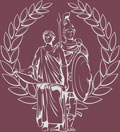Who Won at Waterloo? Rühle von Lilienstern, Jomini, Clausewitz, and the Decisive Battle
Abstract
Napoleon and his supposed recipe for victory became the great model for subsequent generations of strategists. This is odd in the light of his epic defeats of Leipzig and Waterloo, and of the total disappearance of his empire. This essay examines whether and to what extent this is due to the first three great analysts of his ‘way of war’, Rühle von Lilienstern and Clausewitz in the German-speaking world, and francophone Jomini. We find their analysis sufficiently complex to exculpate them in part from the excessive adulation of Napoleon by following strategists. Nevertheless, especially Clausewitz’s and Jomini’s writing focused so much on Napoleonic warfare that through this his way of war came to dominate strategic thinking.
Downloads
Published
Issue
Section
License
Copyright (c) 2015 Beatrice Heuser

This work is licensed under a Creative Commons Attribution-NonCommercial-NoDerivatives 4.0 International License.



